よりよい世界につながる事業(最新版)
よりよい世界を目指すベルロイの2023年度の活動と歩み
毎年、ベルロイでは、地球への影響を最小限に抑えるため、さまざまな決定を行っています。これに関するベルロイの進捗状況は、2023年度最新情報をご覧ください。
お支払方法
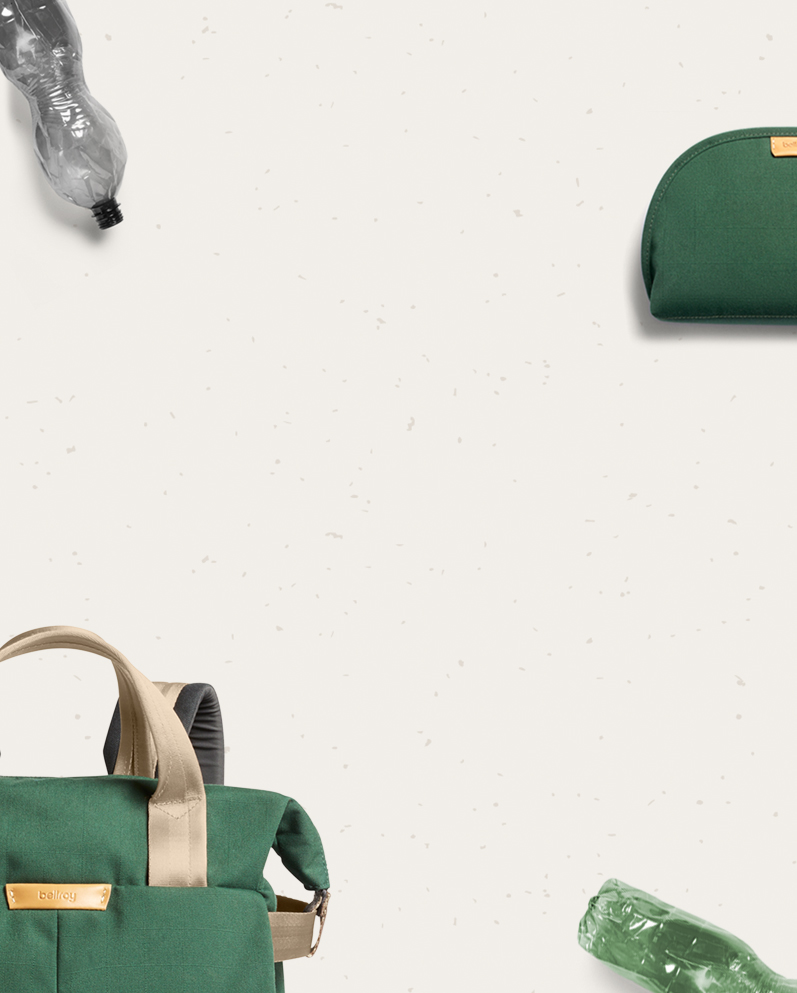
The launch of our Recycled Collection marks the beginning of an important new chapter for Bellroy. It’s the first step toward our long-term goal of making products using entirely recycled and natural materials. To get you up to speed on it, we’ve put together a list of frequently asked questions about the range, materials, recycling process, and everything else you wanted to know.
Why do you sometimes use the term ‘upcycling?’
We like the term ‘upcycling’ because the plastic bottles are being given a much better use than in their previous lives. A plastic water bottle is used once and thrown away to sit in landfill (basically) forever, whereas a Bellroy bag can be used and loved for many years to come.
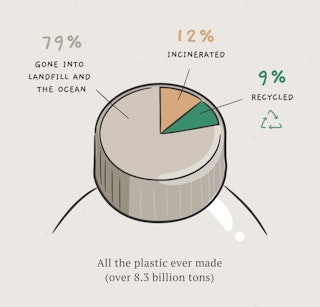
“A plastic water bottle is used once and thrown away to sit in landfill (basically) forever, whereas a Bellroy bag can be used and loved for many years to come.”
Are all of Bellroy’s bags recycled?
Not yet, but we’re pushing hard towards that goal. We aim to have 90% of our woven products made from recycled or natural fabrics by August 2021.
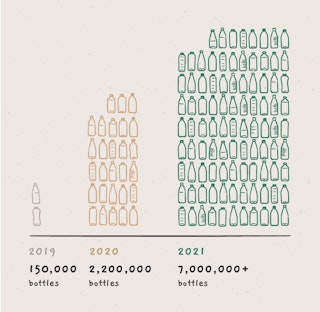
Why 90% and not 100%?
Our ultimate goal is to make 100% of our range from recycled or natural materials. But making products that are used and loved for a long time is the best thing we can do for the environment, and there are some fabrics that just aren’t as durable when made from recycled materials. So we will continue to prioritize longevity, and work actively on the development of higher performing recycled alternatives.
Are the bags 100% recycled?
Our Recycled Collection products have 100% recycled main fabric and lining. The products themselves are not 100% recycled, because the webbing, zips and leather highlights (for example) are made from non-recycled materials… for now.
Will you consider making all of the components recycled?
Absolutely! Our end goal is to have 100% recycled materials in our bags. Right now, we haven’t found components (like zippers, for example) that are both recycled and live up to our rigorous durability standards. So, for the sake of quality and longevity, we’ll continue to use some non-recycled components until we find better options.
“Our ultimate goal is to make 100% of our range from recycled or natural materials.”
What is the material made of?
Our current fabrics are made from polyethylene terephthalate, better known as PET, which is the plastic used in almost all single-use drink bottles. In the case of our bags, the PET is spun into a polyester yarn which is then woven into durable fabric. We’re also in the process of developing other types of recycled materials, which will join the range sometime in the future.
How are the bottles turned into bags?
Recycled bottles are collected, sorted, and sent to a processing facility. There they are chipped into flakes, sifted for quality and then dried. The dried flakes are heated to their melting point, and then extruded as polyester fiber – think spaghetti coming out of a pasta maker. This fiber is treated, dyed and woven into durable fabric, then cut and sewn into bags!
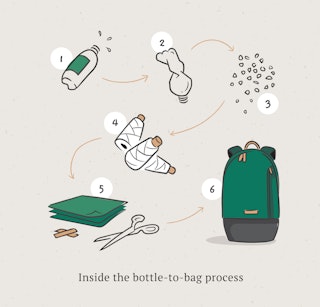
“Thanks to recent advances in material technology, the recycled fabrics we create can now have the same quality, durability and dependability as our non-recycled fabrics.”
How many plastic bottles are actually used in the process for each bag?
Depending on the size of the bag, between nine and 30 bottles are upcycled. Based on a 500mL bottle, the approximate number used to make each bag is:"
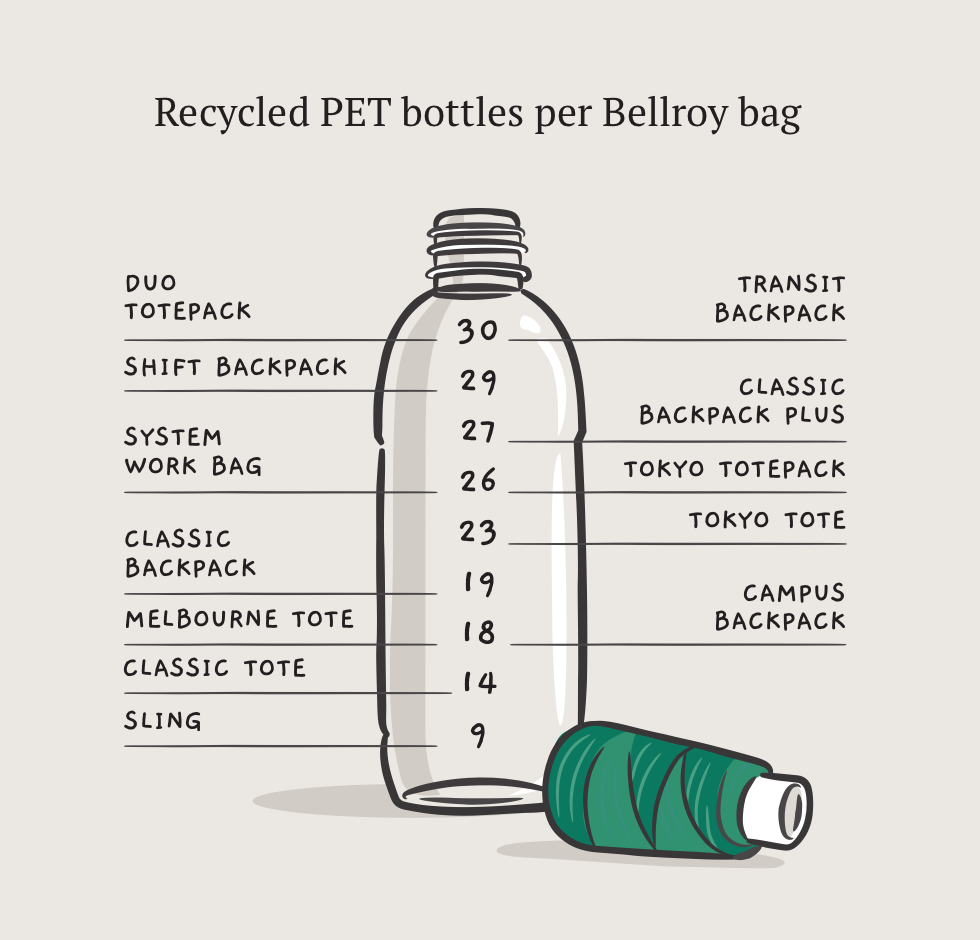
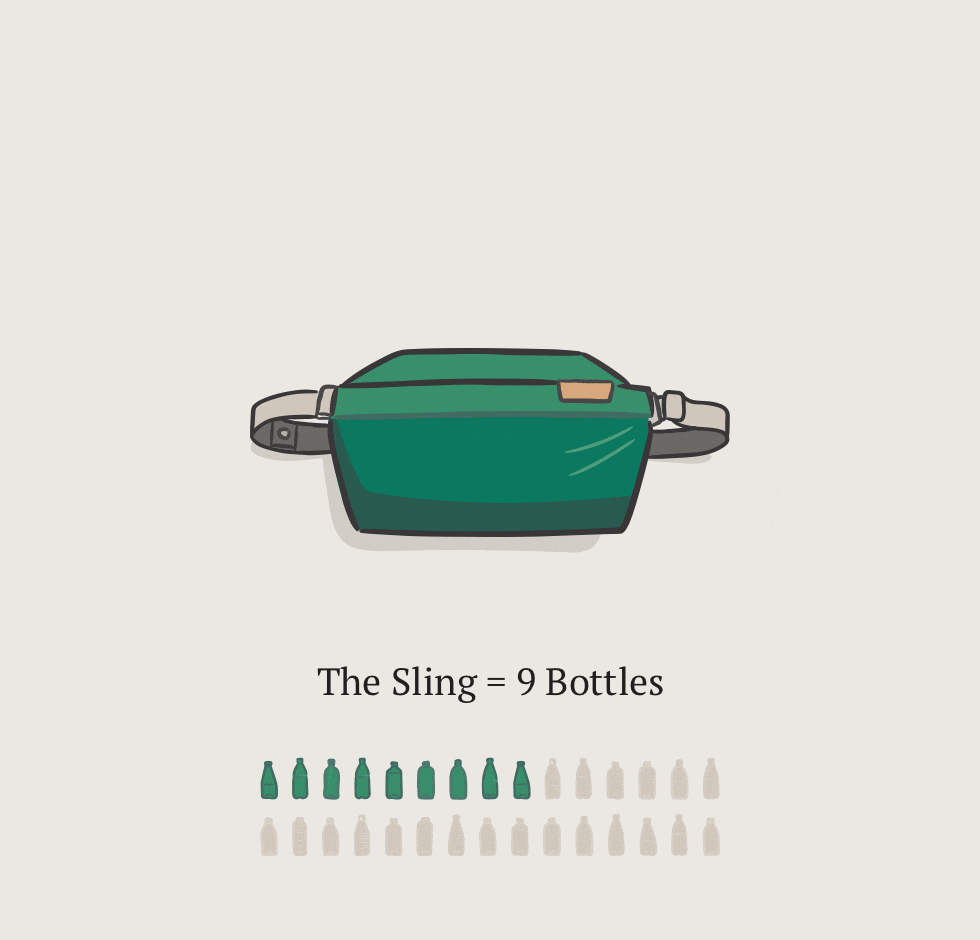
How environmentally friendly is the PET recycling process?
Recycled PET fiber is categorised as a ‘Preferred’ material in the Textile Exchange’s Preferred Fibres & Materials Report. Compared to virgin polyester, the production of recycled PET polyester uses significantly less energy and water, and produces fewer greenhouse gas emissions. Not to mention, recycling helps divert plastic from landfill and the ocean, and give PET plastic a second, more useful life.
Why didn’t you introduce recycled materials sooner?
Before we release any new product, we want to make sure it lives up to our rigorous standards for durability and longevity. We’ve been testing recycled materials for a while now, but waited until now to launch our Recycled Collection so we could be sure that these bags would stand the test of time, just like the rest of our products.
What about Bellroy’s other materials?
Good question! We select our materials based on a balance of functionality, durability and their ability to age gracefully. We are also committed to making them as environmentally sustainable as possible. All of our leathers come from gold-rated Leather Working Group tanneries, which are environmentally certified. (Learn more about our leathers here.) We are continuously working on the development of more sustainable and durable materials for every aspect of our products.
Is your leather environmentally friendly?
Our shift toward recycled fabrics is part of our commitment to using the best materials available, while reducing our impact. One of these materials is high-quality premium leather – it’s long-lasting and it ages beautifully. Other materials used for similar applications tend to crack or peel more quickly – or remain stiff and inflexible to use.
We’re passionate about the leather that we use, and only source premium leather that comes from Leather Working Group (LWG)-accredited tanneries that have achieved a Gold Rating. This means that the tannery is regularly audited and is achieving or exceeding strict standards regarding water usage, effluent, electricity, pollution, labor, working conditions, and other criteria. It also means that we get superior quality leather with great durability and longevity. Bellroy’s production team has strong relationships with the tanneries that we use, and we are confident in their quality.
To learn more about leather, tanneries, and the Leather Working Group, visit https://www.leatherworkinggroup.com
Why are you using plastic at all?
Many of our current fabrics are made of polyester, which is a form of plastic. It makes for strong, hard-wearing, water-resistant fabric, and is used by many apparel companies for this very reason. The shift to recycled polyester means that our bags not only eliminate the need for new plastic to be made, but also reduce the amount of used plastic that ends up in landfill or the ocean. Short answer: it’s better to take used plastic out of the environment than to bring new plastic into it.
“It’s better to take used plastic out of the environment than to bring new plastic into it.”
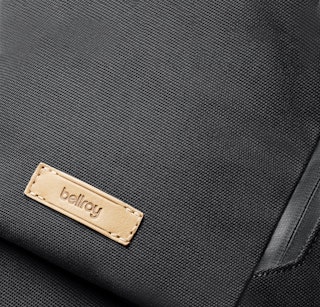
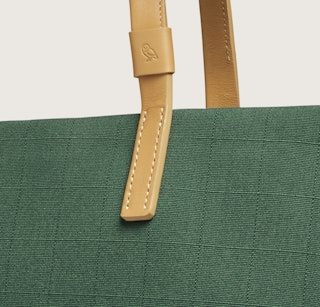
A common misconception is that recycled materials are somehow inferior to virgin ones, and must cost less to produce. The truth is, thanks to recent advances in material technology, the recycled fabrics we use in our bags have the same quality, durability and dependability as our non-recycled fabrics. Recycled PET costs roughly the same as new, and includes additional costs like the collection, sorting, washing, shipping and processing of millions of used bottles.
Does this make your bags vegan?
Our current line of recycled bags is not vegan, due to the premium leather accents.
Shop the Recycled collection.
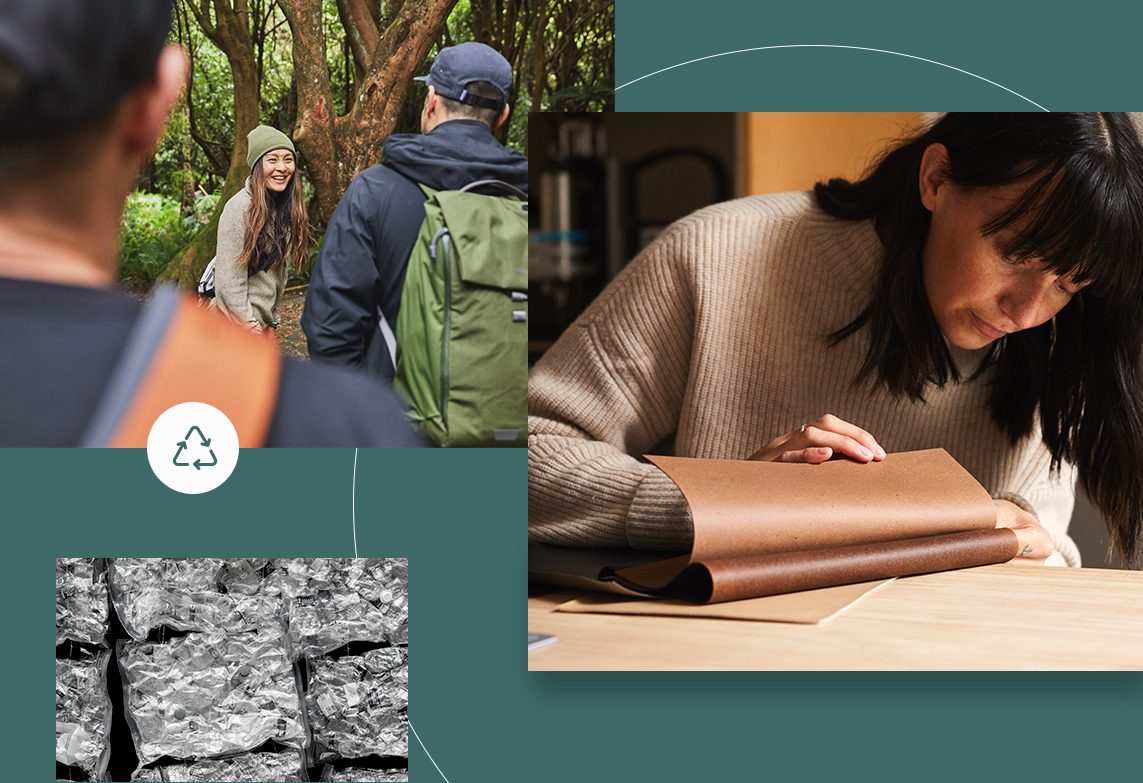
毎年、ベルロイでは、地球への影響を最小限に抑えるため、さまざまな決定を行っています。これに関するベルロイの進捗状況は、2023年度最新情報をご覧ください。
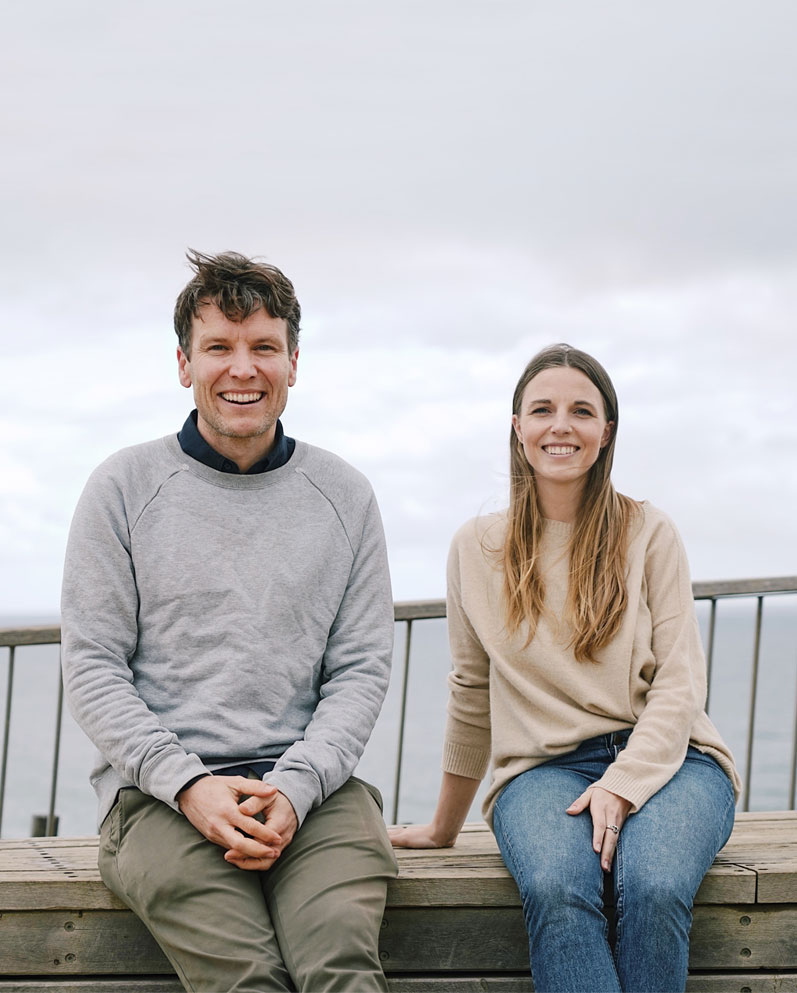
Straight-talking sustainable fashion expert, Teslin Doud, puts Bellroy co-founder, Andy Fallshaw, on the spot.
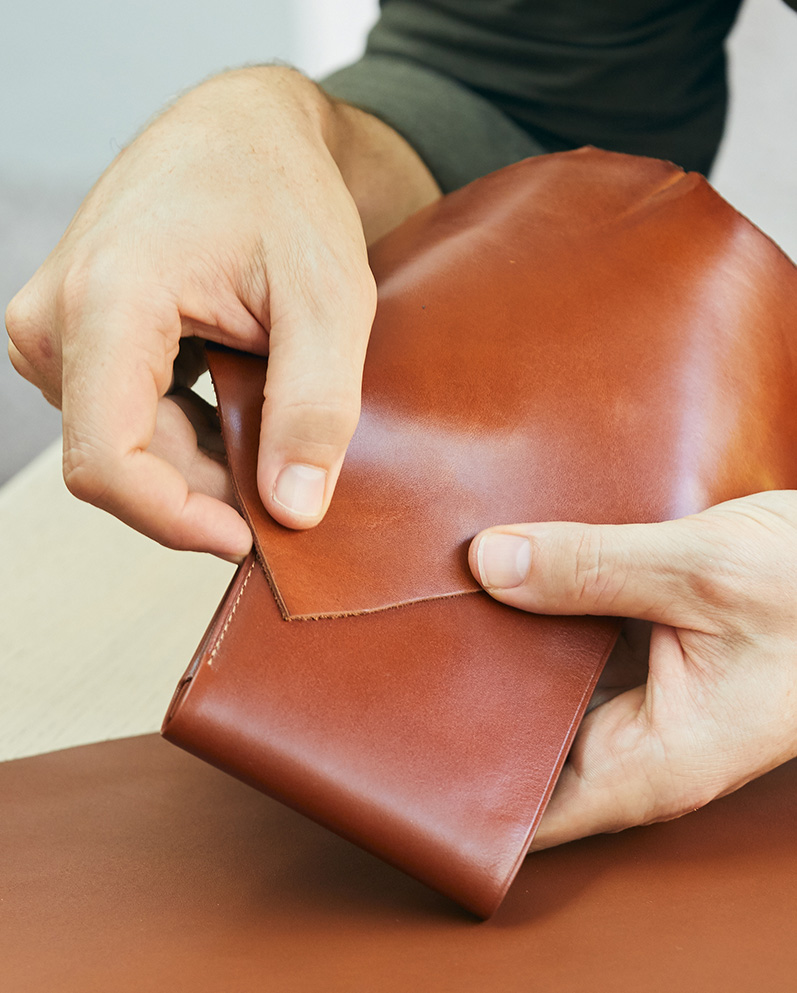
Leathers are not created equal. We've invested time, money and plenty of hours into sourcing the best leathers we can, and here's some of what we know about them.